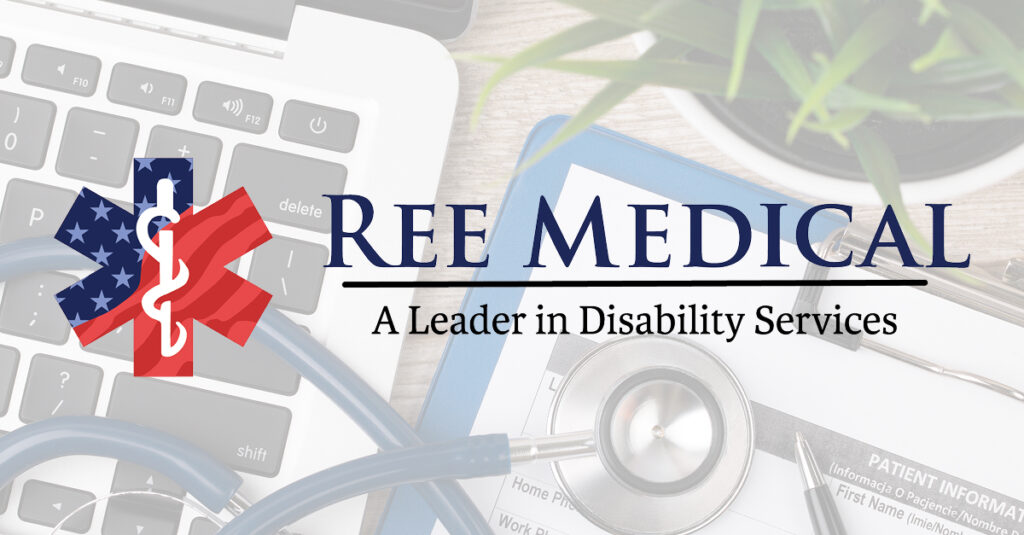One of the most frustrating and disheartening challenges Veterans face when filing VA medical claims is the discovery that their medical files are missing or incomplete. Whether it’s due to military hospital closures, records lost in transit, or not having been documented at all, the absence of these critical records can cast doubt on an otherwise valid claim.
So, can the VA deny a claim because of lost medical files? Unfortunately, yes — but there are important steps you can take to help your case and secure the benefits you deserve. At REE Medical, we specialize in helping Veterans overcome obstacles like these through expert documentation and comprehensive medical evaluations. Our role is to provide the necessary medical support and documentation to strengthen your case, ensuring that your claim is as strong as possible.
How Important Are Medical Records in VA Medical Claims?
Medical records serve as a backbone for VA medical claims. They help prove that:
- You have a current, diagnosed disability
- An injury, illness, or event occurred during your military service
- There are two that have a clear connection (known as a “nexus”)
Without records to back up these elements, the VA may view your claim as lacking the required evidence — potentially leading to a denial. But that doesn’t mean your case is hopeless. Veterans are allowed to submit alternative forms of documentation, and the VA has a legal “duty to assist” in gathering missing evidence. This means that the VA is required to help you locate missing files and consider alternate evidence, such as lay statements, buddy letters, or private medical opinions.
Why Do VA Medical Records Go Missing?
Lost medical records are more common than many realize. Some of the most frequent causes include:
- Natural disasters, such as the 1973 National Archives fire
- Improper record keeping during military service
- Failure to document injuries or illnesses at the time they occurred
- Administrative errors when transferring records to the VA
- Transition from paper to electronic systems, where files are sometimes lost
Missing records don’t make your condition any less real — and at REE Medical, we believe no Veteran should be denied care because of poor documentation.
Can the VA Deny Your Claim Due to Missing Records?
The VA can deny VA medical claims if insufficient evidence supports service connection. This doesn’t mean the VA is punishing you for losing files — but rather, they must follow strict guidelines when approving benefits. If your file lacks sufficient proof, the claim may be considered “not well grounded” or “unsubstantiated.” In VA terms, this means that your claim does not have enough evidence to establish a connection between your current condition and your military service.
However, denial is not the end of the road. Many Veterans appeal denials and win approval by submitting stronger documentation or obtaining an independent medical opinion that fills in the missing pieces — something REE Medical specializes in. This is a path to victory that many Veterans have successfully taken.
How to Strengthen Your VA Medical Claim Without Complete Records
If you know your medical files are missing — or worry they might be — here’s what you can do to give your VA medical claim the best possible chance:
1. Request a Full Copy of Your Service Records
Start by requesting all available service and medical records from:
- The National Personnel Records Center (NPRC)
- The VA Records Management Center (RMC)
- Your last military treatment facility, if applicable
Even partial records can help build a timeline and support your claim.
2. Submit Lay Statements and Buddy Letters
These are written statements from yourself, family members, or fellow service members that describe:
- What happened during service
- How your symptoms began or worsened
- The impact of your condition over time
Buddy letters, in particular, can be invaluable in filling in gaps where documentation is missing.
3. Work With a VA-Savvy Medical Provider
A well-documented Independent Medical Evaluation (IME) and nexus letter can serve as vital evidence. These documents explain how your current condition is likely connected to your service, even without direct medical files.
REE Medical works with a nationwide network of providers who are skilled in providing legally sound and medically credible evaluations tailored to VA requirements.
4. Document Post-Service Treatment
If you’ve been treated by civilians or therapists, those records are fair game in VA medical claims. They can demonstrate the progression of symptoms and help establish that your condition didn’t start recently.
5. Appeal and Strengthen a Denied Claim
If your claim was denied due to missing or insufficient records, you have the right to file a Notice of Disagreement (NOD) or pursue a Supplemental Claim with new and relevant evidence. This is a second chance to present a more compelling case, and while REE Medical does not file claims, we can provide the independent medical evidence you need to support yours.
How REE Medical Helps Strengthen VA Medical Claims
We understand the frustration of dealing with missing records and denied claims at REE Medical. That’s why we offer a structured and supportive approach to help Veterans build powerful, evidence-backed cases.
Here’s how we can assist:
Personalized Case Review
Even if you don’t have all your documents, we thoroughly examine your situation. Our team knows what the VA looks for and how to position your case for success.
Expert Medical Documentation
We coordinate independent medical evaluations with experienced healthcare providers who understand the VA’s strict standards. Each report is crafted to show your condition’s service connection and severity clearly.
Strategic Claim Support
We’re not a law firm, but we work alongside you or your representative to ensure the medical side of your claim is as strong as possible—whether you’re filing for the first time or appealing a previous denial.
FAQ: Denials, Lost Records, and VA Medical Claims
Q: What if the VA lost my records? Can I still file a claim?
A: Yes. The VA is required to assist in locating missing files, and you can submit alternate evidence such as lay statements, buddy letters, or private medical opinions.
Q: Will a nexus letter help if I don’t have service records?
A: Absolutely. A well-written nexus letter from a qualified provider can establish the connection between your condition and service, often compensating for missing documents.
Q: Is it worth appealing a denial based on missing records?
A: Yes. Many Veterans win appeals after strengthening their case with new evidence. REE Medical can provide the documentation you need to support a successful appeal.
You Deserve Benefits — Even If Your Files Are Lost
The loss of medical records should never mean the loss of your right to VA benefits. While it can complicate the process, there are clear steps you can take to strengthen your VA medical claim. With the right medical support and documentation, your case can still succeed. REE Medical helps close the gaps with more than just paperwork, providing the evidence, insight, and expertise you need every step of the way.
If you’re worried about lost files or a denied claim, let REE Medical support you toward a stronger, better-documented claim. Reach out to REE Medical today for a confidential consultation and take control of your VA benefits journey.





